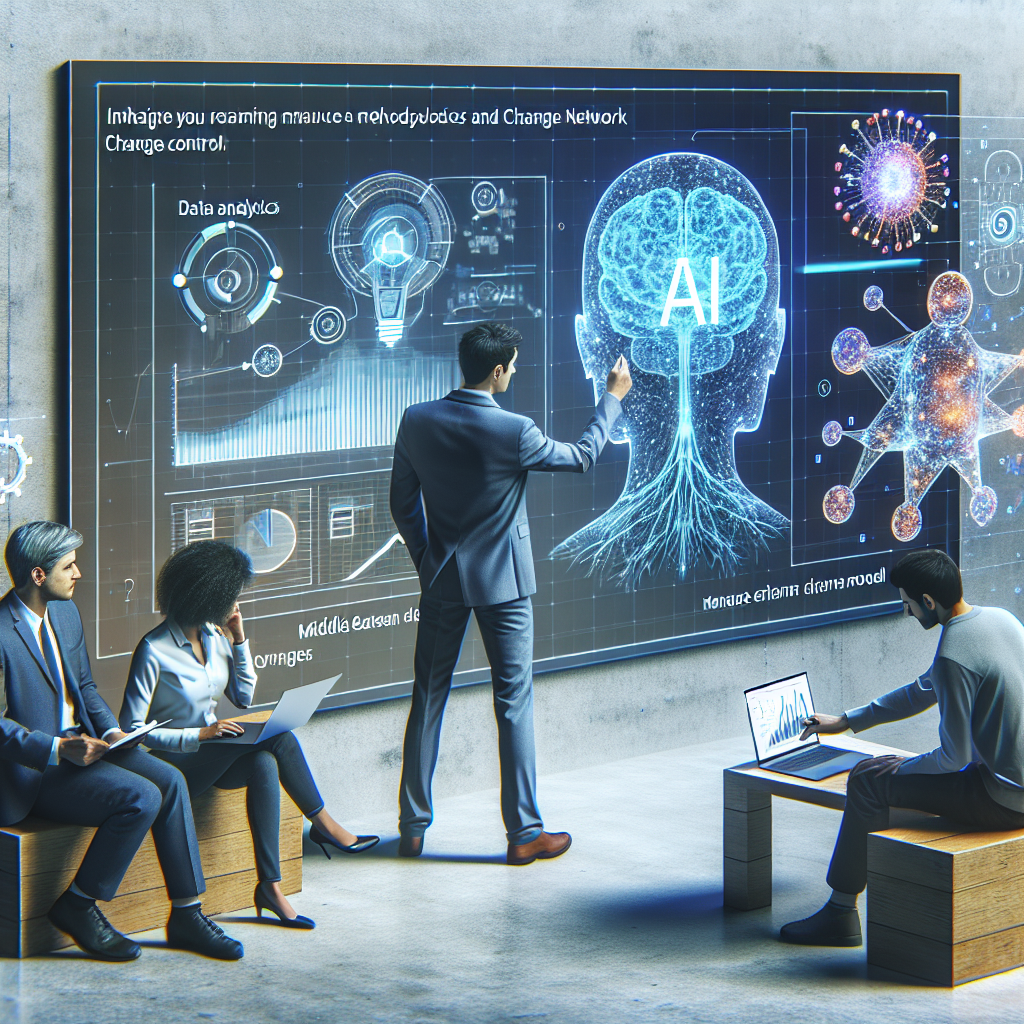Artificial Intelligence (AI) has revolutionized the way businesses operate, offering new opportunities for efficiency, productivity, and innovation. One area where AI is having a significant impact is in project management. AI project management tools can help streamline processes, improve decision-making, and enhance collaboration among team members. However, managing AI projects also presents unique challenges, particularly when it comes to change control. In this article, we will discuss best practices for change control in AI project management and address some common questions and concerns.
Change control in project management refers to the process of managing changes to a project’s scope, schedule, and budget. In AI projects, change control is especially important due to the complex nature of the technology involved. AI systems are designed to learn and adapt over time, which means that changes to the project can have far-reaching implications. Here are some best practices for managing change control in AI project management:
1. Establish a Change Control Board: One of the most effective ways to manage changes in AI projects is to establish a Change Control Board (CCB). The CCB should be made up of key stakeholders, including project managers, AI experts, and business leaders. The CCB will be responsible for reviewing and approving all proposed changes to the project, ensuring that they align with the project’s objectives and do not have any negative impacts on the overall project.
2. Define Change Management Processes: It is essential to have clear and well-defined change management processes in place for AI projects. This includes establishing a formal process for submitting change requests, documenting the impact of proposed changes, and obtaining approval from the CCB before implementing any changes. By defining these processes upfront, you can ensure that changes are managed effectively and efficiently.
3. Conduct Impact Assessments: Before making any changes to an AI project, it is crucial to conduct a thorough impact assessment to understand the potential implications of the proposed changes. This includes evaluating the impact on the project’s timeline, budget, and scope, as well as any potential risks or challenges that may arise. By conducting these assessments, you can make informed decisions about whether or not to proceed with the proposed changes.
4. Communicate Effectively: Communication is key to successful change control in AI project management. It is important to keep all stakeholders informed about any proposed changes, including the reasons for the changes, the potential impact on the project, and the timeline for implementation. By communicating effectively, you can ensure that everyone is on the same page and minimize any confusion or resistance to the changes.
5. Monitor and Evaluate Changes: Once changes have been implemented, it is essential to monitor and evaluate their impact on the project. This includes tracking key performance indicators, gathering feedback from team members, and assessing whether the changes have achieved their intended objectives. By monitoring and evaluating changes, you can identify any issues or challenges that arise and make adjustments as needed.
FAQs:
Q: How can AI project management tools help with change control?
A: AI project management tools can help streamline the change control process by automating tasks, providing real-time insights into project performance, and facilitating collaboration among team members. These tools can also help identify potential risks and opportunities for improvement, allowing project managers to make informed decisions about change management.
Q: What are some common challenges in managing change in AI projects?
A: Some common challenges in managing change in AI projects include resistance to change from team members, difficulty in predicting the impact of changes on the project, and the need for specialized expertise in AI technology. By addressing these challenges proactively and following best practices for change control, you can minimize the risks associated with change management in AI projects.
Q: How can I ensure that changes are implemented effectively in an AI project?
A: To ensure that changes are implemented effectively in an AI project, it is important to have a clear change management process in place, communicate effectively with stakeholders, and monitor and evaluate the impact of changes on the project. By following these best practices, you can increase the likelihood of successful change implementation in your AI project.
In conclusion, change control is a critical aspect of project management, particularly in AI projects where the technology is constantly evolving. By following best practices for change control, establishing clear processes, and communicating effectively with stakeholders, you can ensure that changes are managed effectively and contribute to the success of your AI project.

